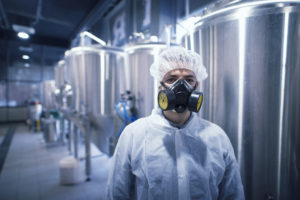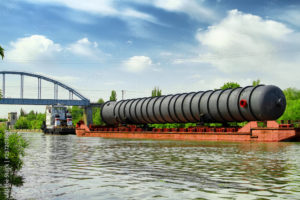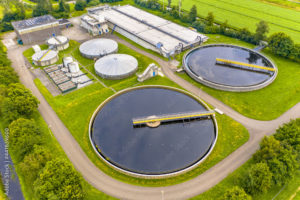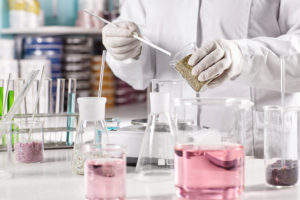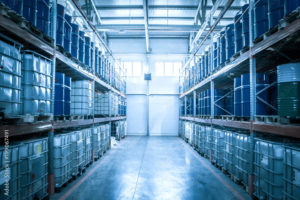Best Industrial Chemicals Supplier in Indonesia
Here is a list of 100 industrial chemicals along with their common applications or uses:
- Acetone: Solvent for paints, varnishes, and adhesives.
- Acetylene: Fuel gas used in welding and cutting applications.
- Acrylic acid: Raw material for producing acrylic polymers and coatings.
- Aluminum sulfate: Coagulant used in water treatment and paper manufacturing.
- Ammonia: Used in fertilizer production and as a refrigerant.
- Ammonium nitrate: Explosive and fertilizer ingredient.
- Benzene: Basic building block for manufacturing plastics, synthetic fibers, and rubber.
- Boric acid: Flame retardant and antiseptic in various industries.
- Butyl rubber: Used in tire manufacturing and adhesives.
- Calcium carbonate: Filler in paper, plastics, and paint manufacturing.
- Carbon black: Pigment in rubber, ink, and plastics.
- Chlorine: Used in water treatment, bleach production, and as a disinfectant.
- Citric acid: Food additive and acidifier in beverages and pharmaceuticals.
- Diethyl ether: Solvent and starting material for chemical synthesis.
- Ethanol: Solvent, fuel additive, and precursor for various chemicals.
- Ethylene glycol: Antifreeze agent and raw material for polyester fibers and plastics.
- Formaldehyde: Used in the production of resins and as a disinfectant.
- Glycerol: Humectant in cosmetics, pharmaceuticals, and food products.
- Hydrochloric acid: Acidifier and cleaning agent in various industries.
- Hydrogen peroxide: Bleaching agent, disinfectant, and oxidizer.
- Isopropyl alcohol: Solvent for cleaning, disinfection, and pharmaceutical preparations.
- Lactic acid: Food additive, pH regulator, and biodegradable polymer precursor.
- Methanol: Raw material for chemicals, solvents, and fuel.
- Nitric acid: Used in fertilizer production, metal etching, and explosives manufacturing.
- Phenol: Raw material for plastics, resins, and pharmaceuticals.
- Phosphoric acid: Food additive, rust remover, and fertilizer ingredient.
- Polyethylene: Widely used plastic for packaging, pipes, and containers.
- Polyvinyl chloride (PVC): Common plastic used in construction, pipes, and vinyl products.
- Potassium hydroxide: Chemical reagent, soap ingredient, and pH regulator.
- Propane: Fuel gas for heating, cooking, and industrial applications.
- Sodium carbonate: Used in glass manufacturing, water treatment, and detergent production.
- Sodium hydroxide: Strong base used in chemical manufacturing and soap production.
- Sulfuric acid: Widely used in various industrial processes and as a battery acid.
- Toluene: Solvent for paints, coatings, and adhesives.
- Xylene: Solvent for paints, coatings, and rubber production.
- Zinc oxide: Additive in rubber, ceramic, and cosmetics.
- Acrylamide: Used in wastewater treatment, paper production, and soil conditioning.
- Adipic acid: Raw material for nylon production.
- Aluminum oxide: Abrasive material and refractory component.
- Ammonium chloride: Fertilizer ingredient and food additive.
- Barium sulfate: Radiopaque agent in medical imaging and filler in plastics.
- Butyl acetate: Solvent for paints, coatings, and adhesives.
- Calcium chloride: Desiccant, de-icer, and food additive.
- Carbon dioxide: Used in carbonation of beverages, fire suppression, and oil recovery.
- Cellulose acetate: Raw material for film, textiles, and filters.
- Chloroform: Solvent and precursor for manufacturing pharmaceuticals.
- Citric acid monohydrate: Food and beverage acidifier and flavor enhancer.
- Dimethyl sulfoxide (DMSO): Solvent and cryoprotectant in pharmaceuticals.
- Ethylene oxide: Raw material for producing plastics, detergents, and solvents.
- Ferrous sulfate: Nutrient supplement and water treatment chemical.
- Fluorine: Used in manufacturing fluoropolymers, refrigerants, and pharmaceuticals.
- Glycolic acid: Cosmetic ingredient and industrial cleaner.
- Hydrofluoric acid: Etchant and pickling agent for metals and glass.
- Iron oxide: Pigment in paints, coatings, and ceramics.
- Lead acetate: Used in hair dyes, stabilizers, and laboratory reagents.
- Maleic anhydride: Raw material for resins, plastics, and coatings.
- Manganese dioxide: Oxidizing agent, catalyst, and pigment.
- Methylene chloride: Solvent for paints, adhesives, and pharmaceuticals.
- Nitrobenzene: Intermediate chemical in dye and pesticide production.
- Perchloroethylene: Solvent for dry cleaning and metal degreasing.
- Phosphorous pentoxide: Dehydrating agent and catalyst.
- Polypropylene: Common plastic used in packaging, fibers, and automotive parts.
- Polyvinyl alcohol: Binder, emulsion stabilizer, and film-forming agent.
- Propylene glycol: Humectant, solvent, and food additive.
- Sodium bicarbonate: Baking ingredient, cleaning agent, and fire extinguisher.
- Sodium hypochlorite: Bleach and disinfectant.
- Sulfur: Raw material for sulfuric acid, rubber vulcanization, and fungicides.
- Titanium dioxide: Pigment in paints, coatings, and plastics.
- Trichloroethylene: Solvent for metal degreasing and dry cleaning.
- Urea formaldehyde: Adhesive in particleboard, plywood, and textiles.
- Vinyl acetate: Raw material for polyvinyl acetate and vinyl polymers.
- Ammonium phosphate: Fertilizer ingredient and flame retardant.
- Borax pentahydrate: Flux in welding, insecticide, and detergent ingredient.
- Calcium hypochlorite: Water disinfectant and bleaching agent.
- Caprolactam: Raw material for nylon production.
- Chlorine dioxide: Bleaching agent and disinfectant.
- Copper sulfate: Fungicide, algaecide, and feed additive.
- Ethyl acetate: Solvent for paints, coatings, and adhesives.
- Formalin: Preservative and disinfectant.
- Glutaraldehyde: Sterilizing agent and tissue fixative.
- Hexane: Solvent for extraction and cleaning applications.
- Isocyanates: Raw materials for producing polyurethane foams, coatings, and adhesives.
- Limestone: Flux in steel production and neutralizing agent.
- Melamine: Raw material for melamine formaldehyde resins and flame retardants.
- Methacrylate: Monomer for producing acrylic polymers and resins.
- Naphthalene: Raw material for dyes, mothballs, and solvents.
- Oleic acid: Emulsifier, lubricant, and surfactant.
- Paraffin wax: Wax for candles, lubricants, and coatings.
- Phthalic anhydride: Raw material for producing plasticizers and dyes.
- Polyethylene glycol: Solvent, lubricant, and binder.
- Potassium permanganate: Oxidizing agent and disinfectant.
- Silicon dioxide: Filler in paints, coatings, and food products.
- Sodium carbonate peroxyhydrate: Oxygen bleach and disinfectant.
- Sodium silicate: Binder, detergent builder, and corrosion inhibitor.
- Styrene: Raw material for producing polystyrene and synthetic rubbers.
- Toluene diisocyanate: Raw material for producing polyurethane foams and coatings.
- Trisodium phosphate: Cleaning agent and water softener.
- Vanadium pentoxide: Catalyst and pigment.
- Zinc chloride: Flux, disinfectant, and preservative.
- Zirconium dioxide: Ceramic pigment and catalyst.
Please note that the applications and uses of these chemicals may vary depending on the specific industry and context.




